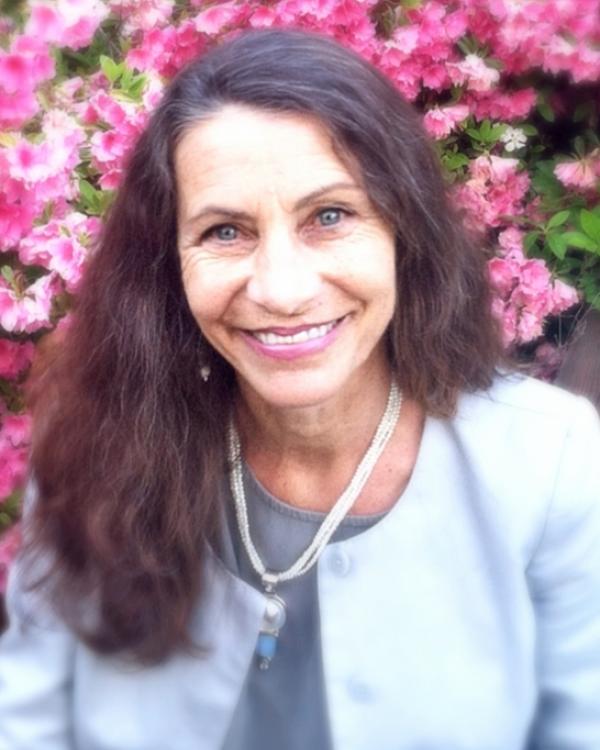
Dr. Kathy R. Fox earned her Ph.D. from the Gevirtz School's Department of Education in 2003 and is currently an Associate Professor at the Department of Early Childhood, Elementary, Middle, Literacy, and Special Education at the University of North Carolina Wilmington’s Watson College of Education. She has recently been promoted to Professor and Department Chair, effective June 2014. She spoke to us about her upcoming position, her time at the GGSE, and her involvement in community education projects.
GGSE: What are some unexpected ways in which the GGSE might have prepared you for your upcoming role as Department Chair?
Dr. Kathy R. Fox: GGSE classes offer ample leadership opportunities, from class presentations, organization of research studies, and participation. The culture of the GGSE recognizes that each participant brings something new to the table. To be a good leader, I want to embody this belief in the UNCW community, to embrace each member's individuality to make a stronger whole.
GGSE: Who did you work with at the GGSE, and what was most beneficial about the program?
Dr. Kathy R. Fox: I worked closest with my advisors, Hsiu-Zu Ho and Carol Dixon, whom I continue to refer to in my teaching and scholarship. I never doubted my success with their support at hand. My first class at the GGSE was with Judith Green, which from the first night on set the tone for the rest of my graduate studies. She inspired me to question my own perceptions and assumptions about classroom practices. In the program, I was inspired by every teacher I had. They were role models of scholarship and service to the community. Teaching at GGSE does not happen in isolation. Faculty and students work together as community members with the end goal of understanding and expanding the potential of a greater learning community. The adage "It takes a village to educate a child," is embraced by the GGSE as all of our work threaded back to how we could make a difference to the child or learner.
GGSE: You studied Cultural Perspectives of Education at the GGSE. How did your work with the Peace Corps and other real-world experience inspire and influence your research interests?
Dr. Kathy R. Fox: US Peace Corps provided me with world knowledge from the ground up. I worked as a horticulture extension agent, helping village women's groups and village schools with school gardens, nutrition and home health issues. As a PC volunteer you teach with necessities at hand, very little tools provided; I learned that communication and personal connection is the most essential ingredient to teaching. After returning from the Peace Corps, I worked in Headstart and Title One schools, K-2nd grades, working with minority language and cultural children and their families in southern and central California. After these experiences, I sought out a graduate program that would develop both my theoretical and practical perspectives. GGSE definitely did that for me, more so than I knew was possible when I began.
GGSE: You’re also affiliated with the Wilmington Residential Adolescent Achievement Program (WRAAP). What is the program, and what does it involve?
Dr. Kathy R. Fox: It is an after school program for children deemed "at risk" because of socio-economic factors. It serves children grades first through eighth in the Wilmington, NC area. It provides academic and nutritional support. I volunteer there to support the program and also encourage my students at UNCW to work alongside me with the children at WRAAP. Our current topic is poetry where the children practice reading poetry and participate in a bi-weekly poetry slam with a guest star local poet. Additionally I have carried over my original dissertation work of examining homework as academic discourse in minority language homes to a similar research project with children and families enrolled in WRAAP.
GGSE: You’ve taught a diverse range of ages, from the elementary school level to a university setting. What has been your most rewarding experience as an educator?
Dr. Kathy R. Fox: I love working with a child as a member of the family as a whole, therefore meaningful work to me will always include working with preschool to elementary age children alongside their siblings and parents. My ideal situation is working with parents at the table with their children, as I did with the Homework Project during my Ph.D. program at UCSB. In this setting, parents and children attended ESL classes together. I believe that without acknowledging the family component, the child is taught in isolation and the learning does not reach its maximum potential. In the classrooms of my current university students, (pre-service teachers and graduate students in literacy education), I encourage family involvement in their classrooms for maximum education potential.